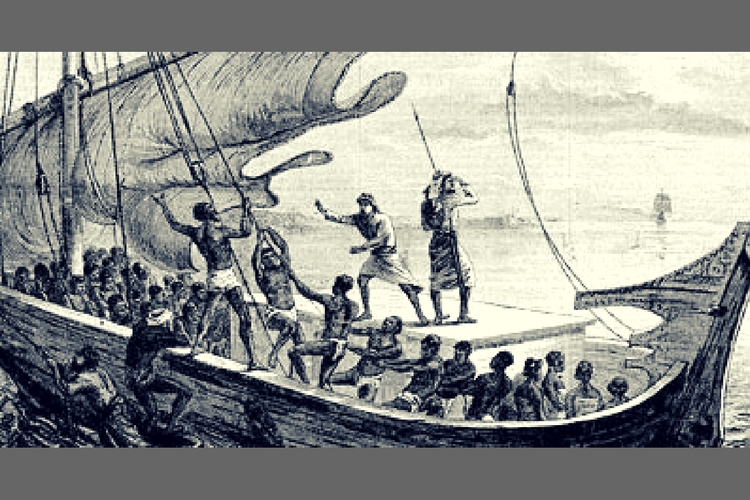
Legacies of British Slave Ownership
Colonial slavery shaped modern Britain and we all still live with its legacies. The slave-owners were one very important means by which the fruits of slavery were transmitted to metropolitan Britain. The Center for the Study of the Legacies of British Slave-ownership has been established a database which traces the impact of slave-ownership on the formation of modern Britain.
In 1833, the British Parliament finally abolished slavery in the British Caribbean, Mauritius and the Cape. The slave trade had been abolished in 1807, but it had taken another 26 years to effect the emancipation of the enslaved. However, in place of slavery the negotiated settlement established a system of apprenticeship, tying the newly freed men and women into another form of unfree labour for fixed terms. It also granted £20 million in compensation, to be paid by British taxpayers to the former slave-owners. That compensation money provided the starting point for this project which traces back to 1763 the ownership histories of the 4000 or so estates.
At the core of the project is this online Encyclopaedia of British Slave-ownership containing information about every slave-owner in the British Caribbean, Mauritius or the Cape at the moment of abolition in 1833. Entries include information about the activities, affiliations and legacies of these men and women, with a particular emphasis on the “absentee” owners based in Britain.
The records of the Slave Compensation Commission, set up to manage the distribution of the £20 million compensation, provide a more or less complete census of slave-ownership in the British Empire in the 1830s. The individuals named in these records form the starting point of the Encyclopaedia. The records regrettably focus on slave-owners; and there is no information on the enslaved themselves.
NOTABLE BRITISH COMMERCIAL FIRMS INVOLVED IN THE SLAVE TRADE
Bank of British North America
Bank of England
Bank of London
Bank of Queensland
Barclay, Bevan and Bening under David and John Barclay (‘After many changes of partners, with the Barclays, Bevans, and Trittons predominating, this firm became the nucleus of the corporate merger of 1896 which became Barclays Bank)
Baring Brothers (Partners in mid-1830s = Thomas Baring (grandson of Sir Francis); Humphrey St John Mildmay was the ‘over-cautious’ son-in-law of Alexander Baring; Joshua Bates; John and Francis Baring. One of ‘the City’s two dominant merchant banks.)
Bristol Brass Wire and Copper Co. (In late 1786 or early 1787 the firm was reconstituted as Harfords and Bristol Brass and Copper Company, dominated by the Harfords, and the Dickinsons probably other shareholders were bought out)
British West India Company
Cavan Brothers (In 1847, James Cavan, John Torrance and Michael McChlery were identified as all of Finsbury Square, merchants and copartners, carrying on business under the firm of Cavan Brothers, and Company, in a notice from the Provost Marshall of British Guiana)
Clagett & Pratt
Demerara Railway Company
Glasgow Arms Bank (Founded c. 1750, originally supported by the Royal Bank of Scotland. Collapsed 1793)
Glasgow Union Banking Company (Predecessor firm of Lloyds. Founded in 1830 as the Glasgow Union Banking Company, a joint-stock bank, then changed its name to Union Bank of Scotland in 1843, the year in which it bought out the Glasgow and Ship Bank, itself formed through the merger of The Ship Bank and the Glasgow Banking Company in 1836. The Glasgow Union Banking company also absorbed Sir William Forbes, James Hunter & Co. of Edinburgh, among others, in the 1830)
Globe Insurance Company
Great Western Railway
Greenwich Railway
Hammersley & Co. (Bank stopped payment on 20 September 1840 after Hammersley’s death , and was absorbed by Coutts & Co)
Life Insurance Company of Scotland
Liverpool and Manchester Railway
Lloyds Banking Company
London & County Joint Stock Banking Company
London & Northern Railway Company
London Assurance (The company had been formed in 1720. Established by Royal Charters granted in June 1720 (marine business) and April 1721 (fire and life). It became a subsidiary of the Sun Alliance in 1965.)
National Bank of Ireland
National Bank of Scotland
National Fire and Life Insurance Co.
Port Phillip and Colonial Gold Mining Company
Royal Bank of Liverpool
Royal Bank of Scotland
Royal Mail Steam Packet Company (Eventually absorbed into other companies and by the 1990s RML no more than the name of a Hamburg-Süd refrigerated cargo service from South America to Europe)
Southampton Railway
The Glasgow Bank (Predecessor firm of Glasgow Union Banking Co, and hence predecessor firm of Lloyds. Founded 1809 by James Dennistoun of Golfhill with James Ewing of Strathleven among others. Merged 1836 with The Ship Bank)
Trinidad Petroleum Company (Established to import oil from Trinidad from lands and estates ‘provisionally secured to the company)
Union Bank of Australia
Universal Life Assurance Society (Established April 1 1834, by ‘gentlemen friendly to a life assurance society for Great Britain and her possessions, especially India’. Acquired May 29 1901 by North British & Mercantile Insurance Co., which became a subsidiary of Commercial Union 1959. Secretary by 1846-1855 at least was Michael Elijah Impey. Directors 1834 included Alexander Baillie, Charles Otway Mayne)
West India Agriculture Company (Established to render available the fertile sources opened for the advantageous investment of capital by the effects of the act for negro emancipation, and … to assist materially in working out the philanthropic results anticipated frm the measure by the Legislature’. To develop settlements in British Guyana (Demerara and Berbice)
Yates Brothers




2 Comments
by Moyo
An eye opening list which shows that white wealth is built on black free labour.
by Samson
True. It seems a lot of these companies like Barclays and Lloyds got their wealth by using free labor
Comments are closed.